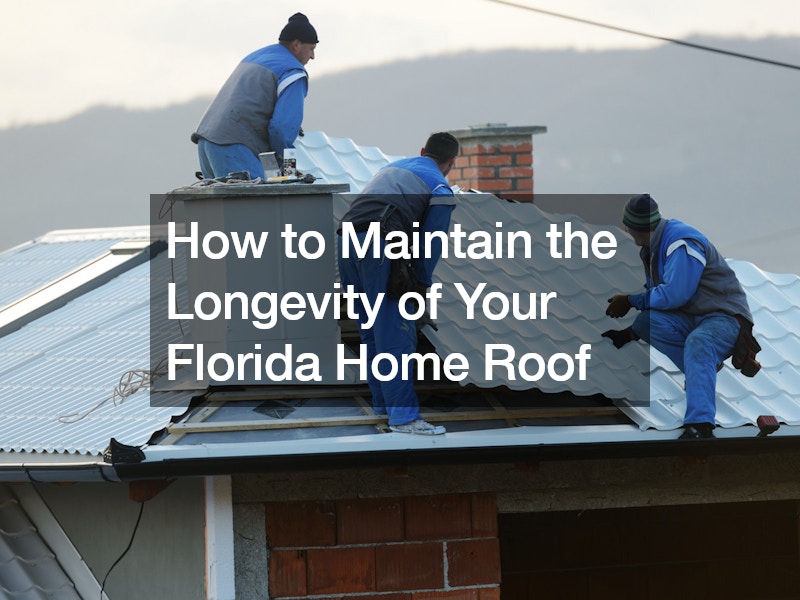Disclaimer: Benro Properties. This site provides home improvement content for informational purposes only.
Florida’s unique climate presents specific challenges for maintaining a home’s roof. From intense sunlight to heavy rains and hurricanes, your roof endures significant wear and tear. Understanding how to maintain your roof properly can extend its lifespan and protect your home. If you’re wondering, ” how long does a roof last in Florida?“, the answer varies depending on materials and maintenance, but proactive care can significantly extend its durability. Here are some tips to help you maintain the longevity of your Florida home roof.
1. Regular Inspections
Regular roof inspections are essential to catch potential issues early. It’s recommended to inspect your roof at least twice a year, preferably in the spring and fall, and after any major storm. Look for signs of damage, such as missing or broken shingles, leaks, or debris buildup. If you’re not comfortable inspecting your roof yourself, hiring a professional can ensure a thorough check.
2. Clean Gutters and Downspouts
Clogged gutters and downspouts can lead to water pooling on your roof, causing leaks and damage. Regularly clean out leaves, twigs, and other debris to ensure proper water drainage. This simple maintenance task can prevent significant water damage and extend your roof’s life.
3. Trim Overhanging Trees
Overhanging tree branches can scratch and damage your roof, especially during strong winds. Additionally, falling branches can cause significant damage. Regularly trim trees near your home to prevent these issues and reduce the risk of debris accumulation on your roof.
4. Address Moss and Algae Growth
Florida’s humid climate can promote the growth of moss and algae on your roof. These organisms can retain moisture, leading to shingle damage and decay. Use a mixture of water and mild bleach to clean affected areas, or install zinc or copper strips to inhibit growth. Regular cleaning helps maintain the integrity of your roof and enhances its appearance.
5. Ensure Proper Ventilation
Proper roof ventilation is crucial in Florida’s hot climate. Adequate ventilation helps regulate temperature and moisture levels in your attic, preventing heat buildup and condensation. This can reduce the risk of shingle damage and mold growth, contributing to a longer-lasting roof.
6. Repair Damage Promptly
Address any signs of damage immediately to prevent minor issues from becoming major problems. Whether it’s a small leak or a few missing shingles, timely repairs can prevent further damage and extend your roof’s lifespan.
7. Choose Durable Materials
When it comes time to replace your roof, choose materials designed to withstand Florida’s climate. Metal roofs, clay tiles, and high-quality asphalt shingles are excellent options that offer durability and resistance to the elements. Investing in quality materials can make a significant difference in how long your roof lasts in Florida.
.

